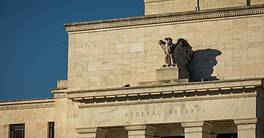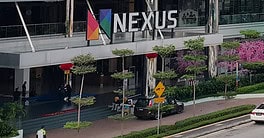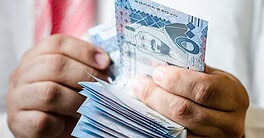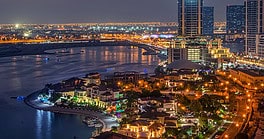Abdelatif Jouahri, governor of the Central Bank of Morocco, shares his thoughts regarding the strengths of the bank and the Moroccan economy. Editor’s note: This interview was conducted prior to recent disasters in the region. Our sympathies are with the people of Morocco and Libya as they seek to recover.
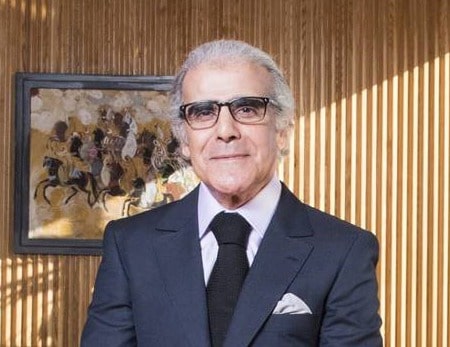
Global Finance: How is Morocco’s economy in 2023?
Abdelatif Jouahri: The Moroccan economy shows signs of improvement after a challenging year in 2022. The consequences of the conflict in Ukraine, combined with a severe drought, created significant difficulties for us. However, recent data suggests an uptick. Notwithstanding considerable efforts by the government to support businesses, households and social programs, fiscal deficit and national debt remain manageable. The kingdom continues to perform well on its external balance thanks to phosphate exports, international tourism and robust remittance inflows from Moroccans abroad.
Bank Al-Maghrib’s official reserves also remain at a comfortable level. Since last year, and like many countries worldwide, Morocco’s inflation has reached levels not seen in decades. Bank Al-Maghrib has had to tighten its monetary policy since September 2022, gradually raising the policy rate by 150 basis points. Inflation has started to decline steadily from its 10.1% peak in February but remains above our price stability goals. Despite recent external shocks that have exposed economic vulnerabilities and affected certain population segments, Morocco has demonstrated remarkable resilience attributed to its economic diversification strategy, reforms implemented over the past two decades, and proactive government actions.
GF: What are the main challenges you face today?
Jouahri: Our primary challenge is battling inflation, and while significant progress has been made, fine-tuning monetary policies remains a complex task, especially in a context of high global uncertainty. Excessive tightening could harm growth and employment, but premature loosening could entail even higher costs. Tightening monetary policy also has an impact on overall financial stability. The recent increases in interest rates could unveil vulnerabilities and emphasize the need for vigilance.
In January 2018, the Moroccan monetary authorities also gradually transitioned to a more flexible exchange rate regime to enhance resilience and competitiveness. Despite recent economic shocks, this transition is going smoothly, but further progress depends on the return of macroeconomic stability and lower inflation. Climate change is another challenge affecting the central bank’s missions, especially regarding financial stability. We must adapt and adjust our instruments and policies to mitigate the effects of this new but very tangible reality. Other concerns include the rise of economic sovereignism, risks and opportunities associated with digital transformation, cybersecurity and data protection. In our view, the unique environment we stand in today requires coordinated monetary and fiscal policies at the national level and strengthened international cooperation.
GF: What are the key strengths of the Moroccan economy?
Jouahri: Morocco’s principal assets are political stability and robust state institutions. These factors are fundamental pillars of strength in today’s complex international and regional geopolitical environment. Morocco also has a longstanding commitment to open and outward-looking economic policies. In recent years, we saw a proliferation of free trade agreements, new partnerships, and enhanced collaboration with the rest of the African continent. Over the past two decades, Morocco has also undertaken substantial investments to develop world-class infrastructure. The country can now boast a modern and efficient network of airports, ports, highways, and railways, making it a strategic regional hub.
Over the same period, Morocco laid the groundwork for developing its financial system, giving Bank Al-Maghrib the necessary autonomy and independence to carry out its mission effectively. As a result, Morocco has a robust and resilient banking system that performs domestically and on international markets, with Moroccan banks present in over 36 countries across Africa, Europe and Asia.
Morocco follows an ambitious reform agenda combined with sound macroeconomic policies to encourage investment. The kingdom is now a major world player in various sectors, including the automotive and aerospace industries. Morocco has also been at the forefront of the global transition toward renewable energies. Our long-term policy choices yield results and have made Morocco a credible international business partner. In the last few months, the kingdom was removed from the gray lists of the Financial Action Task Force [FATF] and the EU and secured a flexible credit line from the International Monetary Fund [IMF]. We are now getting ready to welcome the IMF and World Bank annual meetings in Marrakech.
